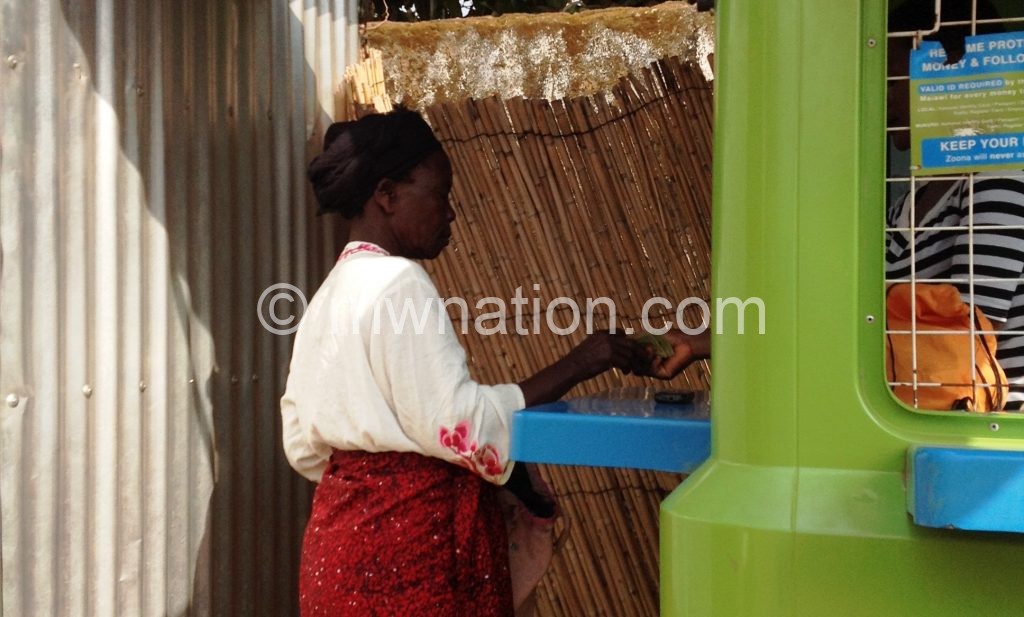Covid wipes vital cash inflows
At 51, Patricia Habibu cannot work as hard as she once did when she was younger.
With age, her earnings usually come short of meeting all her needs.

She now depends on cash inflows from her daughter, who migrated to South Africa in search of pasture anew.
Since she fled worsening poverty a decade ago, the young woman has been sending her mother a part of her valuable savings so that she can cope with the rising cost of living.
Every month, people in Nkhotakota Town used to see Habibu walking slowly and with heavy steps, typically because of exhaustion or harsh conditions.
She used to paces frailly on crowded pathways at the busy market to collect her monthly stipends from one of thousands of Malawian casual workers in South Africa.
Not anymore.
The grandmother, from Vinthenga Village on the outskirts of the town along the picturesque shoreline of Lake Malawi, rarely makes the five- kilometres to collect her cash-outs from an international mobile money agent operating in the busy market.
The financial inflows from South Africa have run dry due to the coronavirus pandemic discovered in China in December 2019.
The fast-spreading virus arrived in South Africa, the worst-hit nation in the Southern African Development Community (Sadc), in March.
Habibu rues the nationwide lockdown the region’s most vibrant economy adopted to reduce the spread of the virus, which has claimed over 500 000 lives from more than 12 million confirmed cases globally.
The stay-at-home measures, including border closures, prevented her daughter from going to work and returning home.
Instead, she has spent her savings on meals and utility bills though she is not working.
The lockdown measures, currently relaxed, disproportionately affected migrant casual workers in South Africa’s worst slums.
Back home, the migrants’ dependents like Habibu are feeling the pinch of the global pandemic, which has disrupted vibrant economies and free movement of people and goods in Sadc and beyond.
“I knew things were difficult even before coronavirus was detected in Malawi because South Africa had already been hit,” says Habibu.
In her rural locality, Habibu hears from the radio how the war on coronavirus transmission is wrecking businesses and wiping away jobs.
Retrenchments in South Africa have led to sudden declines in remittances Habibu requires.
She states: “Left with three grandchildren to look after, our survival depends on the monthly cash-outs we get for our daily needs.
“My daughter is struggling to raise the money because businesses in South Africa have closed. She no longer sends money. This has affected us here. We can no longer meet our daily needs.”
Malawi is a major sender of casual workers to South Africa. According to the Ministry of Foreign Affairs, there are about 100 000 Malawian migrant workers in South Africa.
The exodus is mostly motivated by prospects of better jobs.
They often send home valuable remittances through mobile money agencies, such as Mukuru which Habibu’s daughter prefers.
A Mukuru operator in Lilongwe says the inflows reach K10 million a month, but has declined to just a fifth since the pandemic arrived in South Africa in March.
Lonely Longwe, from Kasitu in the lakeshore district, says the dramatic drop in remittances has affected her livelihood.
Her husband trekked to South Africa to look for better employment, but lost his job to the coronavirus emergency.
The woman, who raises three children singlehandedly from selling fish at the busy market, says: “As is the case in Malawi, businesses in South Africa have also slowed down. My husband has gone two months without working. I am struggling to fend for my children.”
In April, the World Bank projected that remittances to Sub-Saharan Africa would drop by 23.1 percent mainly due to the coronavirus outbreak in key destinations where African migrants reside.
In April, the government announced an emergency cash transfer programme for about one million people and small businesses affected by the pandemic.
Eligible households would receive electronic cash transfers worth K35 000 a month, matching the country’s minimum wage.
However, the programme is yet to upscale the bailout to all needy households.
Meanwhile, President Lazarus Chakwera has ruled out a nationwide lockdown, saying it would hurt the poor majority who live hand-to-mouth.





